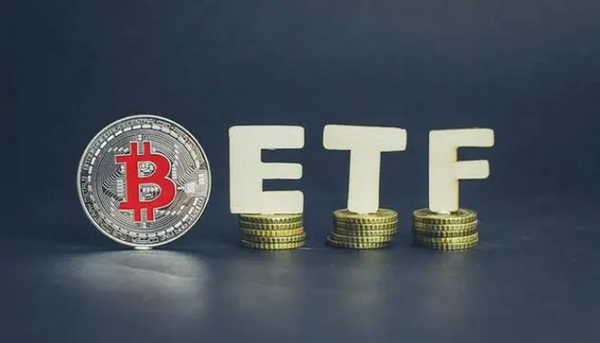-
 Bitcoin
Bitcoin $85,697.3844
1.57% -
 Ethereum
Ethereum $1,638.9615
0.39% -
 Tether USDt
Tether USDt $0.9999
0.00% -
 XRP
XRP $2.1668
2.02% -
 BNB
BNB $589.6303
0.00% -
 Solana
Solana $132.3928
-0.10% -
 USDC
USDC $1.0000
-0.01% -
 TRON
TRON $0.2521
-1.70% -
 Dogecoin
Dogecoin $0.1597
-2.28% -
 Cardano
Cardano $0.6439
0.85% -
 UNUS SED LEO
UNUS SED LEO $9.4287
0.41% -
 Chainlink
Chainlink $12.6833
-0.80% -
 Avalanche
Avalanche $20.0262
0.05% -
 Stellar
Stellar $0.2425
-0.03% -
 Toncoin
Toncoin $2.9684
4.14% -
 Sui
Sui $2.2145
-3.52% -
 Hedera
Hedera $0.1672
0.05% -
 Shiba Inu
Shiba Inu $0.0...01194
-1.99% -
 Bitcoin Cash
Bitcoin Cash $333.3345
-1.23% -
 Litecoin
Litecoin $77.8594
0.59% -
 Polkadot
Polkadot $3.7096
1.64% -
 Hyperliquid
Hyperliquid $16.3941
4.91% -
 Dai
Dai $1.0000
0.01% -
 Bitget Token
Bitget Token $4.3126
1.07% -
 Pi
Pi $0.7411
-1.42% -
 Ethena USDe
Ethena USDe $0.9991
0.02% -
 Monero
Monero $213.9141
2.70% -
 Uniswap
Uniswap $5.4003
-0.80% -
 OKB
OKB $52.2630
-1.39% -
 Pepe
Pepe $0.0...07415
0.89%
are bitcoin etfs a good investment
Bitcoin ETFs offer regulated exposure to the cryptocurrency, but investors should carefully consider regulatory frameworks, fees, diversification, investment objectives, risk tolerance, investment horizon, and alternative investment options before investing.
Oct 27, 2024 at 08:56 pm

Are Bitcoin ETFs a Good Investment?
Understanding Bitcoin ETFs
- Definition: Bitcoin ETFs (exchange-traded funds) track the price of Bitcoin, allowing investors to access exposure to the cryptocurrency without directly purchasing it.
- Structure: Bitcoin ETFs typically hold physical Bitcoin or Bitcoin futures contracts to track the underlying asset's value.
Factors to Consider
- Regulation: Bitcoin ETFs are regulated in different ways depending on the jurisdiction. Some regulatory frameworks are more stringent than others, which can impact the availability and accessibility of Bitcoin ETFs for investors.
- Charges and Fees: Bitcoin ETFs incur fees such as management fees, expense ratios, and trading commissions. These fees can reduce the potential returns on investment.
- Diversification: Bitcoin ETFs provide a convenient way to diversify an investment portfolio, but it's important to note that Bitcoin remains a highly volatile asset and should be considered as part of a broader investment strategy.
Considerations for Investment
- Investment Objectives: Investors should determine if their investment objectives are aligned with the potential risks and returns of Bitcoin. Bitcoin ETFs are suitable for investors who are comfortable with higher volatility and seek exposure to the cryptocurrency.
- Risk Tolerance: Bitcoin ETFs carry significant risk due to the volatility of Bitcoin. Investors should carefully evaluate their risk tolerance before investing in these products.
- Investment Horizon: Bitcoin ETFs are generally considered more suitable for long-term investments due to the potential for market fluctuations in the短 term.
- Alternative Investment Options: Investors can also consider other ways to gain exposure to Bitcoin, such as purchasing Bitcoin directly, investing in Bitcoin mining companies, or speculating on Bitcoin futures contracts.
Conclusion
Bitcoin ETFs can provide a convenient and regulated way to access exposure to the cryptocurrency. However, investors should carefully consider the factors discussed above and make informed decisions based on their individual investment goals and risk tolerance. By understanding the risks involved and selecting ETFs that meet their specific needs, investors can potentially benefit from the potential growth of Bitcoin.
Disclaimer:info@kdj.com
The information provided is not trading advice. kdj.com does not assume any responsibility for any investments made based on the information provided in this article. Cryptocurrencies are highly volatile and it is highly recommended that you invest with caution after thorough research!
If you believe that the content used on this website infringes your copyright, please contact us immediately (info@kdj.com) and we will delete it promptly.
- Ethereum (ETH) Price Prediction: ETH Up for Rally As Buying Signal Flashes
- 2025-04-15 18:00:12
- XRP Price Prediction: Technical Analysis and Market Momentum
- 2025-04-15 18:00:12
- Toncoin (TON) Is in the Spotlight as Several On-Chain and Technical Indicators Suggest a Possible Rally
- 2025-04-15 17:55:15
- MAGACOINFINANCE – Viral Momentum With Real ROI
- 2025-04-15 17:55:15
- When Peter Brandt speaks, the markets listen. This trading veteran, active since the 1970s, dropped a bombshell
- 2025-04-15 17:55:13
- KiloEx, a decentralized exchange (DEX) for trading perpetual futures, was hit by a sophisticated attack
- 2025-04-15 17:55:13
Related knowledge

What is the difference in returns between long-term holding of a Bitcoin ETF and holding Bitcoin directly?
Apr 09,2025 at 04:15am
When considering the difference in returns between long-term holding of a Bitcoin ETF and holding Bitcoin directly, it's essential to understand the nuances and factors that affect each investment option. Both approaches have their unique advantages and potential drawbacks, which can significantly impact the overall returns over time. Understanding Bitc...

How is the "roll cost" of a futures Bitcoin ETF generated?
Apr 08,2025 at 01:22pm
The 'roll cost' of a futures Bitcoin ETF is a critical concept for investors to understand, as it directly impacts the performance of the ETF. In this article, we will delve into the mechanics of how the roll cost is generated, exploring the underlying processes and factors that contribute to this cost. Understanding Futures ContractsFutures contracts a...

How can the premium or discount of a Bitcoin ETF be narrowed through an arbitrage mechanism?
Apr 09,2025 at 12:07am
Arbitrage mechanisms play a crucial role in narrowing the premium or discount of a Bitcoin Exchange Traded Fund (ETF). Understanding how these mechanisms work can provide valuable insights into the dynamics of Bitcoin ETFs and their relationship with the underlying asset. This article will delve into the specifics of how arbitrage can be used to align t...

What factors affect the bid-ask spread of a Bitcoin ETF?
Apr 08,2025 at 08:50pm
The bid-ask spread of a Bitcoin Exchange Traded Fund (ETF) is a critical metric that investors and traders closely monitor. It represents the difference between the highest price a buyer is willing to pay (bid) and the lowest price a seller is willing to accept (ask). Several factors influence this spread, and understanding them can help investors make ...

How is the seed capital of a Bitcoin ETF used?
Apr 10,2025 at 02:15pm
The seed capital of a Bitcoin ETF plays a crucial role in the establishment and operation of the fund. This initial investment is used to create the fund's underlying assets, manage operational costs, and ensure the ETF can start trading on an exchange. Understanding how this seed capital is utilized provides insight into the mechanics of Bitcoin ETFs a...

What is the difference between "physically backed" and "synthetic" Bitcoin ETFs in terms of holding assets?
Apr 10,2025 at 04:56pm
Bitcoin Exchange Traded Funds (ETFs) have become a popular way for investors to gain exposure to the cryptocurrency market without directly owning the underlying asset. There are two primary types of Bitcoin ETFs: physically backed and synthetic. Understanding the differences between these two types, particularly in terms of how they hold assets, is cru...

What is the difference in returns between long-term holding of a Bitcoin ETF and holding Bitcoin directly?
Apr 09,2025 at 04:15am
When considering the difference in returns between long-term holding of a Bitcoin ETF and holding Bitcoin directly, it's essential to understand the nuances and factors that affect each investment option. Both approaches have their unique advantages and potential drawbacks, which can significantly impact the overall returns over time. Understanding Bitc...

How is the "roll cost" of a futures Bitcoin ETF generated?
Apr 08,2025 at 01:22pm
The 'roll cost' of a futures Bitcoin ETF is a critical concept for investors to understand, as it directly impacts the performance of the ETF. In this article, we will delve into the mechanics of how the roll cost is generated, exploring the underlying processes and factors that contribute to this cost. Understanding Futures ContractsFutures contracts a...

How can the premium or discount of a Bitcoin ETF be narrowed through an arbitrage mechanism?
Apr 09,2025 at 12:07am
Arbitrage mechanisms play a crucial role in narrowing the premium or discount of a Bitcoin Exchange Traded Fund (ETF). Understanding how these mechanisms work can provide valuable insights into the dynamics of Bitcoin ETFs and their relationship with the underlying asset. This article will delve into the specifics of how arbitrage can be used to align t...

What factors affect the bid-ask spread of a Bitcoin ETF?
Apr 08,2025 at 08:50pm
The bid-ask spread of a Bitcoin Exchange Traded Fund (ETF) is a critical metric that investors and traders closely monitor. It represents the difference between the highest price a buyer is willing to pay (bid) and the lowest price a seller is willing to accept (ask). Several factors influence this spread, and understanding them can help investors make ...

How is the seed capital of a Bitcoin ETF used?
Apr 10,2025 at 02:15pm
The seed capital of a Bitcoin ETF plays a crucial role in the establishment and operation of the fund. This initial investment is used to create the fund's underlying assets, manage operational costs, and ensure the ETF can start trading on an exchange. Understanding how this seed capital is utilized provides insight into the mechanics of Bitcoin ETFs a...

What is the difference between "physically backed" and "synthetic" Bitcoin ETFs in terms of holding assets?
Apr 10,2025 at 04:56pm
Bitcoin Exchange Traded Funds (ETFs) have become a popular way for investors to gain exposure to the cryptocurrency market without directly owning the underlying asset. There are two primary types of Bitcoin ETFs: physically backed and synthetic. Understanding the differences between these two types, particularly in terms of how they hold assets, is cru...
See all articles























































































